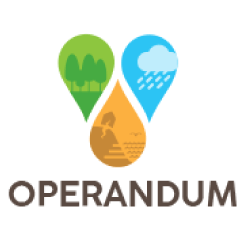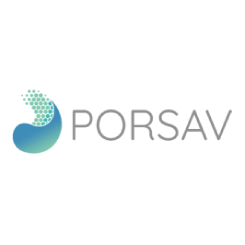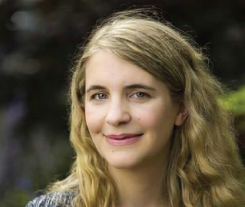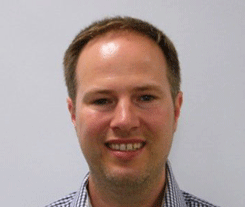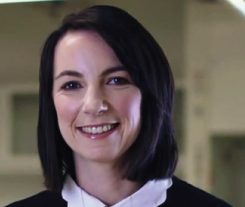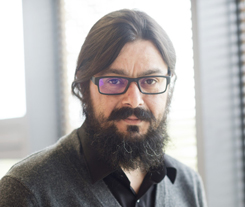Global Impact
Research
- Awards and Prizes
- Research Themes
- Research Institutes
- Research Centres
- Spin Out Activity
- Technology Transfer
- Industry Collaborations
- Entrepreneurship Training
- The UCD STEM Challenge Fund
- Impact Showcase
- Global Impact
- Postgraduate Student Opportunities
- 2023 STEM Symposium
- Wall of Frames 2023
- Smurfit Kappa Newman Fellowship Award
- ERC Grants
International Collaborations Addressing Global Challenges
The UCD College of Engineering & Architecture is leading and participating in a range of international collaborations that are undertaking projects to address many global challenges society is facing in areas including:
- climate change
- environment resource efficiency and raw materials
- energy
- food security
- sustainable agriculture
- health
and contributing to achieving the (opens in a new window)United Nations Sustainable Development Goals.
The following are some examples of such projects that have been awarded by the European Commission Research and Innovation through H2020 and Horizon Europe programmes.
H2020 and Horizon Europe programmes
UCD College of Engineering & Architecture also co-ordinates and participates in a number of Marie Skłodowska-Curie Actions are the European Union’s reference programme for doctoral education and postdoctoral training. They contribute to excellent research, boosting jobs, growth and investment by equipping researchers with new knowledge and skills.
Examples of such projects include:
(opens in a new window)AgRefine
A Disruptive Innovative Cooperative Entrepreneurial (DICE) education, training and skills development programme rolling out the next generation of Agri Biorefinery and Valorisation Bioeconomy leaders.
(opens in a new window)Protect
Climate change and food safety have become interdependent worldwide research priorities. In order to meet the EU challenge of doubling food production by 2050 (to meet population demands) while dealing with the impact of climate change on food safety, investment in research to address this issue is required. The overarching aim of this Innovative Training Network (ITN) is to provide high-level training in Predictive mOdelling Tools to evaluate the Effects of Climate change on food safeTy (PROTECT) to a new generation of high achieving early stage researchers. PROTECT will provide them with the transferable skills necessary for thriving careers in a burgeoning area that underpins innovative technological development across a range of diverse disciplines. This goal will be achieved by a unique combination of “hands-on” research training, non-academic placements, summer schools and workshops on research-related and transferable skills facilitated by the academic and non-academic composition of the consortium. PROTECT brings together intersectoral and multidisciplinary expertise from 11 European Countries (7 third level educational institutions, 6 industry partners, 1 United Nations agency). The consortium will share technical and training expertise to recruit and train 8 highly skilled ESRs in advanced modelling tools to investigate the impact of climate change on food safety, considering food as unsafe if it is injurious to health (due to pathogenic bacteria or mycotoxins) or unfit for human consumption (due to spoilage bacteria). Moreover, PROTECT will use this new knowledge to create a science based decision support tool and develop policy guidance through a white paper. The consortium will support specialist job creation in an area central to human and environmental health while ensuring continued growth and public confidence in Europe’s agri-food sector.
(opens in a new window)CBIM
CBIM is a new European research and training network in the area of Cloud-based Building Information Modelling. CBIM is funded by the EU Horizon 2020 program under the Marie Skłodowska-Curie Innovative Training Network call, and the stipends/salaries are particularly generous.
(opens in a new window)wingrid
The WinGrid consortium aims to train and launch the next generation of researchers on power system integration issues associated with the large-scale deployment of wind generation, focusing particularly on the modelling and control aspects of wind turbine and grid interface design, system stability and robust implementation. The consortium comprises a wide-ranging expert group of 10 academics from 8 beneficiary organisations including 7 leading universities and one large company across 6 countries. It also includes 8 internationally renowned industrial partners (ABB, Vestas, EirGrid, SGCC, FTI, Rotem, Dansk Energi, and ESC) ranging from wind turbine developers, transmission system operators, power system analysts and renewable energy consultants from 6 countries.
(opens in a new window)SIMPPER_MedDev
Our ETN will train 12 Early Stage Researchers (ESRs) to acquire key competencies, enabling them to perform world-class research and become international leaders in Europe’s medical devices industry. This ETN focuses on Surface Integrity for Micro/Nano Processing of Polymers and is a European Research Network for high performance Medical Devices. By working closely with industry, the SIMPPER_MedDev ETN has identified 6 target polymer medical devices that will achieve new functionality through using surface micro/nano structures, as summarised in Table 1.0. Our ETN will train 12 Early Stage Researchers (ESRs) to acquire key competencies, enabling them to perform world-class research and become international leaders in Europe’s medical devices industry. The three scientific objectives of this network are: 1) Establish a design strategy for surface micro/nano structures that provide required functionality for polymer medical devices; 2) Develop fabrication process chains to create micro/nano structures via micro/nano moulding & forming, and micro/nano additive and subtractive manufacturing of various polymer materials; 3) Establish how surface integrity affects the relationship between polymer micro/nano processing and associated part performance, thereby optimising the efficacy and performance of medical devices. The training objective of SIMPPER_MedDev is to ensure that 12 outstanding ESRs become expert on precision processing of polymers for medical devices and products through an international, interdisciplinary and intersectoral approach, thereby improving their career prospects and employability. This will be ensured by the SIMPPER_MedDev consortium of 5 research-intensive universities, 10 leading manufacturers of important classes of medical devices and medical products (6 MNCs and 4 SMEs), and an internationally recognised orthopaedics hospital that spans 5 European countries. The deep involvement of world-leading industry partners in the training network will ensure that improvements beyond the state-of-the-art translate into the next generation of designs for medical devices and that 12 ESRs will be trained in all of the design, manufacturing, evaluation and commercial aspects of this interdisciplinary and intersectoral field, and they are provided with key transferable skills, helping to ensure that Europe remains at the forefront of the worldwide medical devices manufacturing industry.
ERC Award Holders
International Networks
UCD is a member of several international networks which span research and education. A number of College faculty and staff play active roles within these networks.









